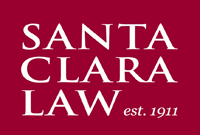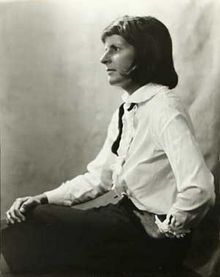Regents of the University of California v. Bakke, 438 U.S. 265 (1978) was a landmark decision by the Supreme Court of the United States which involved a dispute of whether preferential treatment for minorities can reduce educational opportunities for whites without violating the Constitution. It upheld affirmative action, allowing race to be one of several factors in college admission policy. However, the court ruled that specific racial quotas, such as the 16 out of 100 seats set aside for minority students by the University of California, Davis School of Medicine, were impermissible.

Katharine Brush was an American newspaper columnist, short-story writer, and novelist. In the era of the 1920s-1930s, she was considered one of the country's most widely-read fiction writers, as well as one of the highest paid women writers of her time; several of her books were best-sellers, and several others were made into movies.

The Santa Clara University School of Law is the law school of Santa Clara University, a Jesuit university in Santa Clara, California, United States, in the Silicon Valley region. The School of Law was founded in 1911. The Jesuit affiliation of the university is manifested in a concern with ethics, social justice, and community service.

Murmur of the Heart is a 1971 French comedy-drama film written, produced and directed by Louis Malle. It stars Lea Massari, Benoît Ferreux and Daniel Gélin. Written as Malle's semi-autobiography, the film tells a coming-of-age story about a 14-year-old boy (Ferreux) growing up in bourgeois surroundings in post-World War II Dijon, France, with a complex relationship with his Italian-born mother (Massari).

Brenda Ueland was a journalist, editor, freelance writer, and teacher of writing. She is best known for her book If You Want to Write: A Book about Art, Independence and Spirit.

Florynce Rae Kennedy was an American lawyer, radical feminist, civil rights advocate, lecturer and activist.
Charles Alan Reich was an American academic and writer best known for writing the 1970 book, The Greening of America, a paean to the counterculture of the 1960s. Excerpts of the book first appeared in The New Yorker, and its seismic reception there contributed to the book leading The New York Times Best Seller list. Due to the theme and implications of this book Reich was described as a "high priest of antitechnology".
Kristine Huskey is an American lawyer. Huskey is notable because she volunteered to help defend Guantanamo detainees. Huskey is the author of "Standards and Procedures for Classifying "Enemy Combatants": Congress, What Have You Done?"

Ann Landers was a pen name created by Chicago Sun-Times advice columnist Ruth Crowley in 1943 and taken over by Esther Pauline "Eppie" Lederer in 1955. For 56 years, the Ask Ann Landers syndicated advice column was a regular feature in many newspapers across North America. Owing to this popularity, "Ann Landers", though fictional, became something of a national institution and cultural icon.
Barbara Allen Babcock was the Judge John Crown Professor of Law, Emerita, at Stanford Law School. She was an expert in criminal and civil procedure and was a member of the Stanford Law School faculty from 1972 until her death.

And Still I Rise is author Maya Angelou's third volume of poetry, published by Random House in 1978. It was published during one of the most productive periods in Angelou's career; she had written three autobiographies and published two other volumes of poetry up to that point. Angelou considered herself a poet and a playwright, but was best known for her seven autobiographies, especially her first, I Know Why the Caged Bird Sings, although her poetry has also been successful. She began, early in her writing career, alternating the publication of an autobiography and a volume of poetry.
Catherine Janet Kissee Sandoval is a former commissioner of the California Public Utilities Commission. Sandoval is a professor at Santa Clara University School of Law. As of February 2023, she has served as a member of the U.S. Chemical Safety and Hazard Investigation Board. In 1984, she was the first Latina Rhodes scholar.

The themes encompassed in African-American writer Maya Angelou's seven autobiographies include racism, identity, family, and travel. Angelou (1928–2014) is best known for her first autobiography, I Know Why the Caged Bird Sings (1969). The rest of the books in her series are Gather Together in My Name (1974), Singin' and Swingin' and Gettin' Merry Like Christmas (1976), The Heart of a Woman (1981), All God's Children Need Traveling Shoes (1986), A Song Flung Up to Heaven (2002), and Mom & Me & Mom (2013).

Oh Pray My Wings Are Gonna Fit Me Well is a book of poems by American author Maya Angelou, published by Random House in 1975. It is Angelou's second volume of poetry, written after her first two autobiographies and first volume of poetry were published. Angelou considers herself a poet and a playwright, but is best known for her seven autobiographies, especially her first, I Know Why the Caged Bird Sings, although her poetry has also been successful. She began, early in her writing career, alternating the publication of an autobiography and a volume of poetry. Although her poetry collections have been best-sellers, they have not received serious critical attention.

Maya Angelou, an African-American writer who is best known for her seven autobiographies, was also a prolific and successful poet. She has been called "the black woman's poet laureate", and her poems have been called the anthems of African Americans. Angelou studied and began writing poetry at a young age, and used poetry and other great literature to cope with trauma, as she described in her first and most well-known autobiography, I Know Why the Caged Bird Sings. She became a poet after a series of occupations as a young adult, including as a cast member of a European tour of Porgy and Bess, and a performer of calypso music in nightclubs in the 1950s. Many of the songs she wrote during that period later found their way to her later poetry collections. She eventually gave up performing for a writing career.
Chapters from My Autobiography are 25 pieces of autobiographical work published by American author Mark Twain in the North American Review between September 1906 and December 1907. Rather than following the standard form of an autobiography, they comprise a rambling collection of anecdotes and ruminations. Much of the text was dictated.
Sharon Ann Chatman was an American college basketball coach, a lawyer, and a judge.

Devikarani Priscilla Sewpal Jana was a South African human rights lawyer, politician and diplomat of Indian descent. As a member of the African National Congress (ANC) during the anti-apartheid movement, she participated in both legal activism as well as in the underground movement to end apartheid. She represented many significant figures in the movement, including South African president Nelson Mandela, Winnie Madikizela-Mandela, Steve Biko, Govan Mbeki, Walter Sisulu, and Archbishop Desmond Tutu. Jana was one of the very few South Africans who had access to political prisoners, including Mandela, in the maximum security Robben Island prison, and served as an emissary for coded messages between the political prisoners and the ANC leadership.
Sara Collins is a Jamaican-born Caymanian-British novelist and former lawyer. She earned a Costa Book Award for her 2019 historical fiction novel The Confessions of Frannie Langton.










